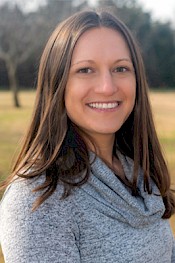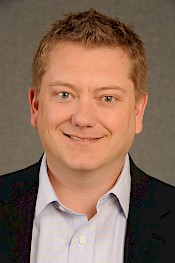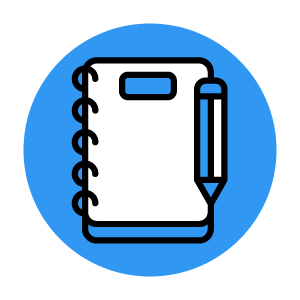Webinar
Using A Contemporary Understanding of Concussion to Improve Performance
Webinar Archive
If you already purchased this webinar, you can access the archive.
Otherwise, you can register for access to the archive.
Keep your confirmation email(s) as CEU documentation for AASP webinars and virtual conferences.
Description
Speakers
Samantha Sanderson Brown, PsyD, HSP, Commander Counseling and Wellness
Chris Vaughan, PsyD, Children's National Hospital
Overview
Approximately a quarter of the U.S. population reports having sustained at least one concussion in their life, with many of these injuries occurring in sport (Daugherty et al., 2020). Most athletes will recover fully from concussion, but some will progress to developing chronic and long-lasting problems with mental health being a predominant concern (Gornall et al., 2021). While the foundational understanding of the injury process of a concussion has remained relatively unchanged over the last decade, significant advances in the clinical assessment and in particular, treatment, have occurred. Consensus meetings in 2015 espoused the assessment of clinical profiles (i.e., symptoms subtypes) to better define and ultimately treat the heterogenous groups of patients who have sustained a concussion (Collins et al., 2015). Simultaneously, a longstanding tenet of treatment - namely rest - was being criticized and has subsequently been replaced by calls for active symptom management (Collins et al., 2015). Research studying prescribed rest has demonstrated the potential ineffectiveness or risk for harm of this prior approach, while the extant treatment literature has grown in the areas of aerobic exercise, vestibular therapy, oculomotor/vision therapy, and behavioral approaches (Thomas et al., 2015; Leddy et al., 2019; McCrory et al., 2017). Understanding the basic pathophysiology of a concussion and gaining understanding of the current knowledge of contemporary concussion research on assessment, treatment, and outcomes are critical for competency of anyone practicing within applied sport and performance psychology. Moreover, sport psychology professionals are key players in the concussion management team and can serve necessary roles to provide education based on current and accurate science, provide relevant behavioral and mental health intervention, and to ultimately help facilitate full physical and psychological recovery (Bloom et al., 2022).
Learning Objectives
At the conclusion of the webinar, participants will be able to:
- Discuss the basic pathophysiology of concussion.
- Explain the differences in clinical profiles and identify how they may be assessed in individuals with symptoms of concussion.
- Provide 3 examples of current approaches towards treatment of concussion.
- Describe typical recovery trajectories and list at least 4 risk factors for protracted recovery.
- Explain a framework of how performance professionals can conceptualize their role in concussion injury and recovery.
References
- Bloom, G.A., Trbovich, A.M., Caron, J.G., & Kontos, A.P. (2022). Psychological aspects of sport-related concussions: An evidence-based position paper. Journal of Applied Sport Psychology, 34 (3), 495-517.
- Collins, M. W., Kontos, A. P., Okonkwo, D. O., Almquist, J., Bailes, J., Barisa, M., ... & Zafonte, R. (2016). Statements of agreement from the targeted evaluation and active management (TEAM) approaches to treating concussion meeting held in Pittsburgh, October 15-16, 2015. Neurosurgery, 79(6), 912-929.
- Daugherty, J., DePadilla, L., Sarmiento, K., & Breiding, M. J. (2020). Self-reported lifetime concussion among adults: comparison of 3 different survey questions. The Journal of head trauma rehabilitation, 35(2), E136.
- Gornall, A., Takagi, M., Morawakage, T., Liu, X., & Anderson, V. (2021). Mental health after paediatric concussion: a systematic review and meta-analysis. British journal of sports medicine, 55(18), 1048-1058.
- Thomas, D. G., Apps, J. N., Hoffmann, R. G., McCrea, M., & Hammeke, T. (2015). Benefits of strict rest after acute concussion: a randomized controlled trial. Pediatrics, 135(2), 213-223.
- Leddy, J. J., Haider, M. N., Ellis, M. J., Mannix, R., Darling, S. R., Freitas, M. S., ... & Willer, B. (2019). Early subthreshold aerobic exercise for sport-related concussion: a randomized clinical trial. JAMA pediatrics, 173(4), 319-325.
- McCrory, P., Meeuwisse, W., Dvorak, J., Aubry, M., Bailes, J., Broglio, S., ... & Vos, P. E. (2017). Consensus statement on concussion in sport—the 5th international conference on concussion in sport held in Berlin, October 2016. British journal of sports medicine, 51(11), 838-847.
CE Credit
This program has been approved for 1.25 hours of CE to partially meet the continuing education recertification requirement for Certified Mental Performance Consultants® (CMPC).
Program Format
You can attend an AASP webinar from your home or office. All you need is an internet connection. You can see the presentation slides on your computer or mobile device, and listen to the audio through your device, or call in with a phone. Registrants will be provided with login information the day prior to the session. The webinar will also be archived for those who wish to watch it at a later date.
About the Speakers
 Samantha Sanderson Brown, PsyD, HSP has worked with individuals with mild to severe traumatic brain injury in an acute hospital setting and outpatient clinic. She has 8 years of clinical experience working with youth to elite and professional athletes in the area of concussion assessment and treatment, as well as sport performance. The combination of Dr. Brown’s clinical experience with her experience as a Division I soccer player inform her passion for ensuring that anyone working with athletes are well-informed about concussion to foster respect for the injury without creating undue fear. She is also a member of CCSPA and AASP.
Samantha Sanderson Brown, PsyD, HSP has worked with individuals with mild to severe traumatic brain injury in an acute hospital setting and outpatient clinic. She has 8 years of clinical experience working with youth to elite and professional athletes in the area of concussion assessment and treatment, as well as sport performance. The combination of Dr. Brown’s clinical experience with her experience as a Division I soccer player inform her passion for ensuring that anyone working with athletes are well-informed about concussion to foster respect for the injury without creating undue fear. She is also a member of CCSPA and AASP.
 Chris Vaughan, PsyD has over 15 years of clinical experience working with athletes from youth sports to professional teams in the area of concussion assessment and treatment. He is a current fellow and former board member of a professional organization dedicated to promoting the science and practice of sport concussion. He has been actively involved in federally-funded research examining outcomes of concussion in youth and adolescent sports. He has published over 20 empirical articles and book chapters on the topic of concussion. He has presented at national and international meetings on the assessment and treatment of concussion.
Chris Vaughan, PsyD has over 15 years of clinical experience working with athletes from youth sports to professional teams in the area of concussion assessment and treatment. He is a current fellow and former board member of a professional organization dedicated to promoting the science and practice of sport concussion. He has been actively involved in federally-funded research examining outcomes of concussion in youth and adolescent sports. He has published over 20 empirical articles and book chapters on the topic of concussion. He has presented at national and international meetings on the assessment and treatment of concussion.
Registration
Students – $25.00
Members – $35.00
Non-members – $50.00
Register to access the archive




